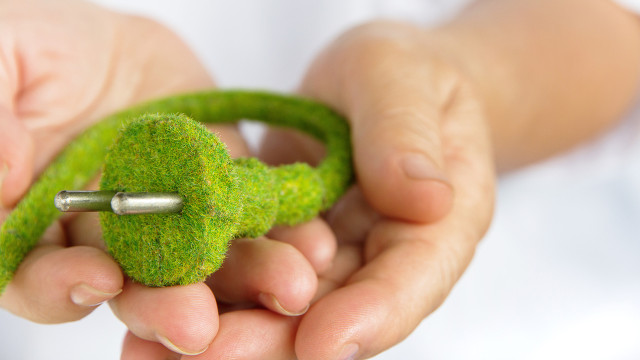SUMMARY
This is AI generated summarization, which may have errors. For context, always refer to the full article.
 What comes to mind when you hear the term “renewable energy?”
What comes to mind when you hear the term “renewable energy?”
If the world were strictly divided into only two realms, good and bad, renewable energy would most likely be classified as good.
Clean, green, no carbon emissions, no air pollution, no negative health impacts, abundant, unlimited.
These are what has been said about renewable energy.
Reporting for Rappler on this form of energy that can do no wrong has led me to discover that, as in all things, it’s far too easy to see the world in binary opposition.
There are other things being said about renewable energy: unstable, unreliable, expensive, a mere add-on, carbon-emitting.
An engineer I met during a visit to a solar farm under construction in Negros Occidental worked for 3 years in a coal-fired plant in South Africa before signing on for renewable energy projects. He told me renewable energy isn’t ready to stand on its own yet.
For many, many years to come, the world will continue to rely heavily on fossil fuel energy sources like coal, oil and natural gas, simply because as things stand, renewable energy is still unable to meet the monstrous energy demands of the world.
His statement echoes the words of no less than the Renewable Energy Management Bureau director of the country, Mario Marasigan.
“We cannot do away with fossil fuels, at least in our lifetimes. The demand [for energy in the Philippines] is still increasing and that’s why we still have to accommodate coal,” he told me.
Their words are a sobering wake-up call for those who think renewable energy is the panacea to the world’s energy problems. (READ: DOE to add more renewable energy to grid by 2014)
Not (yet) a panacea
How is renewable energy less stable and reliable compared to dirty fossil fuel?
Simply put, renewable energy is not 24/7. Sure it’s abundant and unlimited. You can’t “finish” the sunlight, wind or the thermal heat from the core of the earth. But the sun sets or disappears behind clouds, sometimes the wind stops blowing, or the temperature in geothermal sites drops literally, causing them to run out of steam.
That’s why the focus of renewable energy companies is to develop better ways to store power generated from renewable energy. But at the moment, only fossil fuel sources can electrify grids day and night.
And don’t think renewable energy projects don’t cause social impacts similar to those blamed on fossil fuel companies.

Types of hydropower plants that require a dam displace just as many riverside communities as a coal plant. Solar farms that need plenty of space to catch as much sunlight as possible can take the land away from agricultural use.
When operators drill holes deep into the earth to harness geothermal energy, they can inadvertently let out harmful or toxic gases.
Using ethanol as an alternative to petroleum to power cars can drive up prices of corn or sugarcane, crops from which ethanol is derived.
Open doors, open minds
So what am I saying? Do we shut the door against renewable energy?
A resounding no. I remain a staunch advocate of renewable energy but an even stauncher advocate of refining the technology that remains our world’s only chance of curbing climate change.
As with any monumental initiative, we must proceed with caution and extensively study the weaknesses of our innovations lest they come back to haunt us.
We need to make an unflinching appraisal of renewable energy in all its imperfections so that we have something to show skeptics who want to protect the dominance of fossil fuel energy, an industry which continues to fill the pockets of a few while the rest suffer.
We cannot afford to be flippant about renewable energy. We don’t have enough time. If it doesn’t catch up soon with fossil fuel in terms of cost and reliability, there will be little to persuade the world to abandon fossil fuel combustion that is emitting greenhouse gases, and warming the planet in the process.
A recent study showed that 63% of all historic carbon emissions comes from 90 fossil fuel companies, including Shell, Chevron, ExxonMobil and BP.
If the earth warms by more than 2 degrees Celsius, scientists say the world is in for “catastrophic” climate change impacts – super typhoons, extreme droughts, monstrous storm surges, ice caps melting, and oceans acidifying.
The road to renewable
Renewable energy already lives up to many musical-sounding appraisals. It’s clean because it has little or no waste products like carbon dioxide, other greenhouse gases or chemical pollutants.
Renewable energy facilities are also easier to maintain, since they don’t involve large equipment like the boilers, conveyor belts and combustion systems of fossil fuel plants.
And in the long run, renewable energy is cheaper because while fossil fuel plants need costly coal, oil or natural gas to run, renewable energy only needs what nature can provide abundantly and is free of charge.
So what if renewable energy can never generate as much electricity as coal, oil and natural gas?
Maybe what humans need is a lifestyle change instead of more energy. Maybe instead of making sure renewable energy powers us just as much as fossil fuels, we should adjust to the inherent limitations of renewable energy and do what we should’ve done long ago: consume less and live smart.
As the technology improves and prices go down, renewable energy already has one foot through the door. It’s up to us to push it a little further. – Rappler.com
Pia Ranada is a Rappler multimedia reporter covering the environment and agriculture beats.
iSpeak is a parking space for ideas worth sharing. Send in your contributions to move.ph@rappler.com.
Eco plug image from Shutterstock
Add a comment
How does this make you feel?
There are no comments yet. Add your comment to start the conversation.